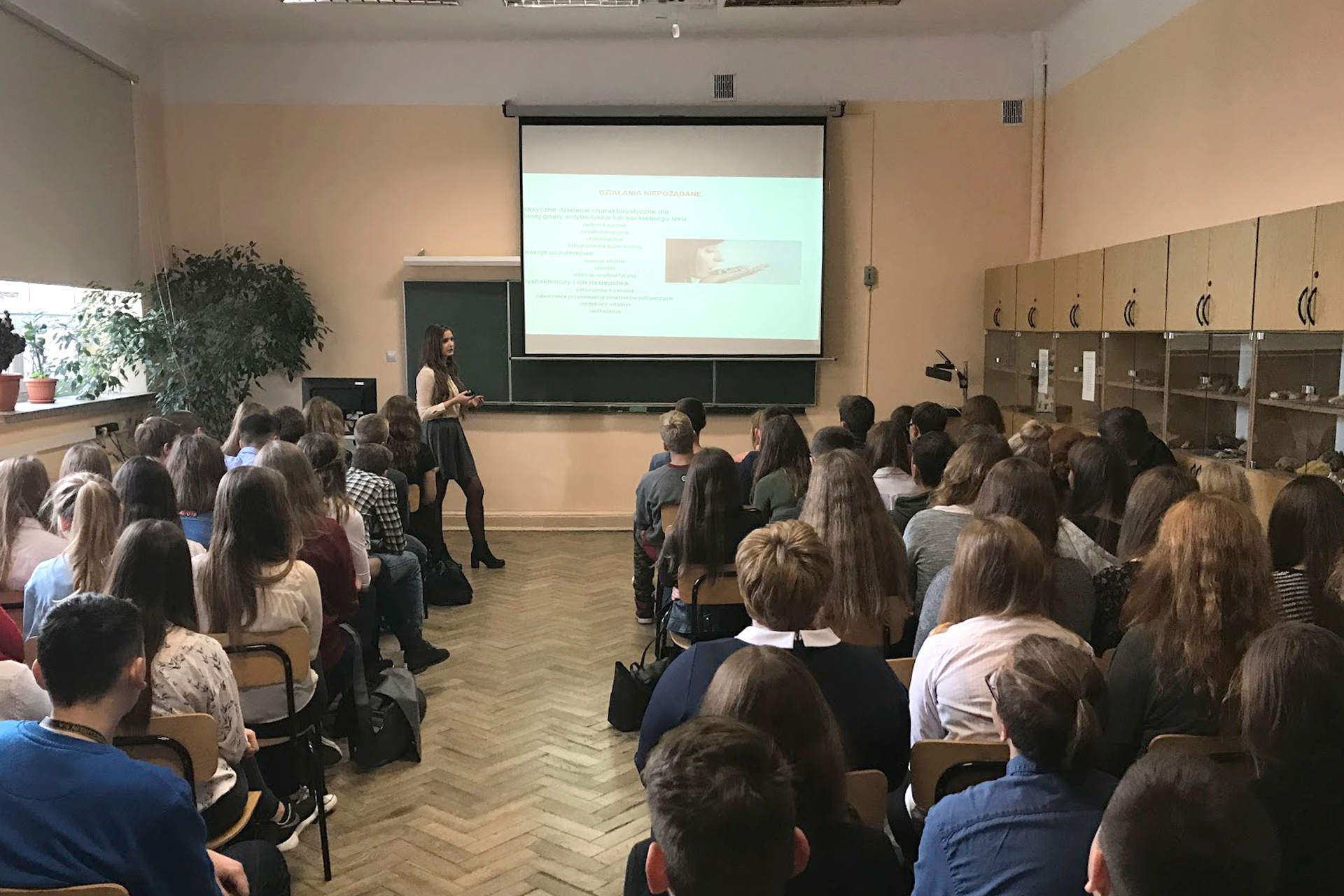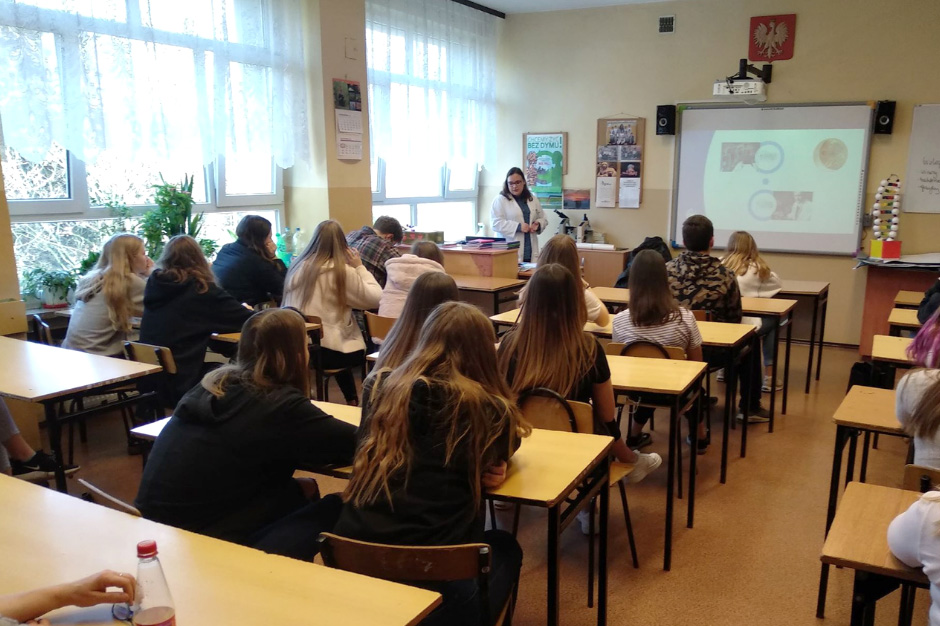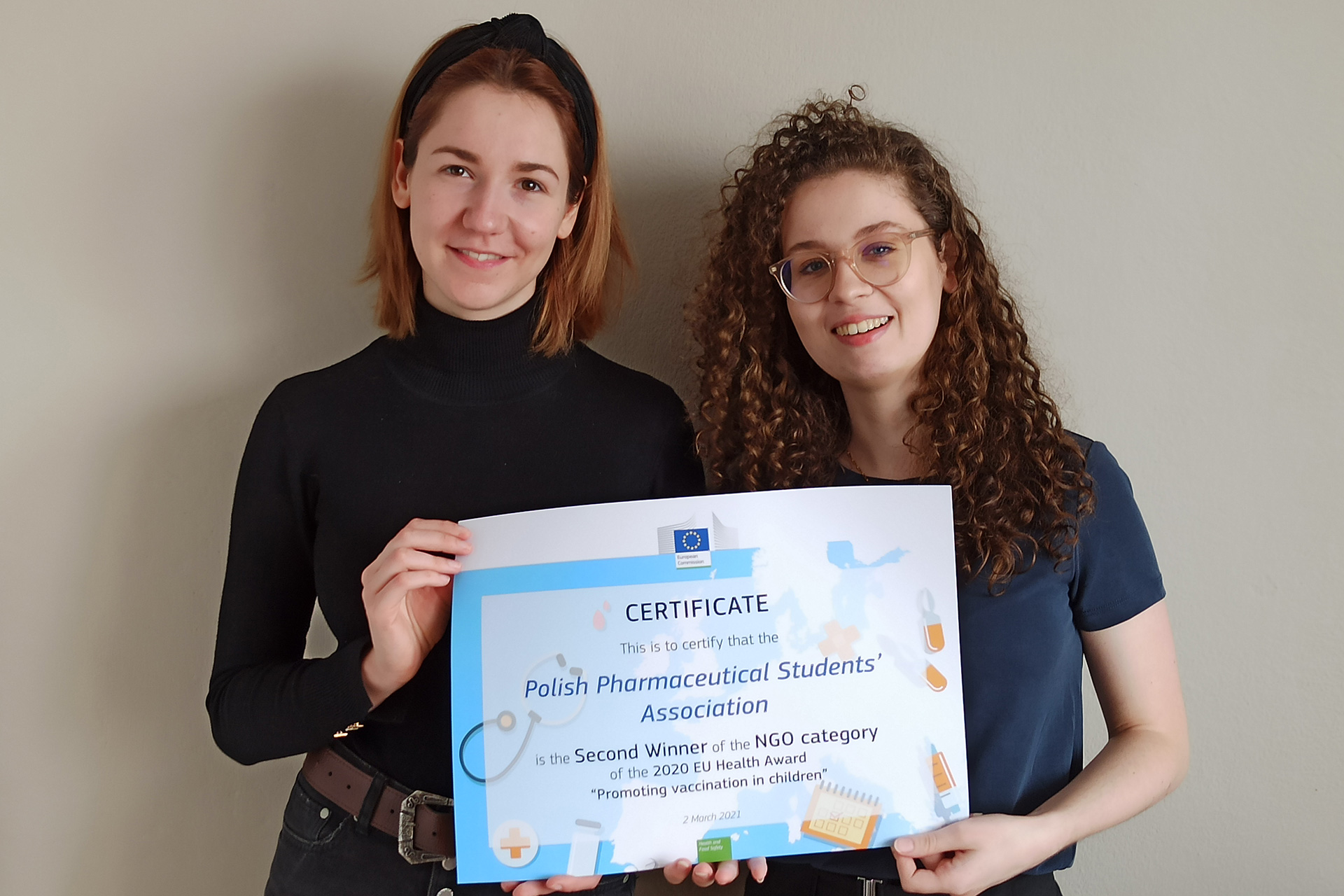Joanna Oberska and Marianna Gajda were in the early days of their pharmacy studies when the results of a survey caught their eye. The study, shared at a scientific conference, revealed that some students at Warsaw Medical University had big gaps in their knowledge of vaccines. More than that, those who were hesitant about vaccination when they entered university were unlikely to change their minds during their college years.
This struck the young pharmacy students as a bit odd, to say the least. ‘We thought it was weird that people studying medicine didn’t change their view of vaccines during their training,’ Marianna recalls. ‘If they were hesitant at the start, they were most likely to still be hesitant after several years of medical school.’

They decided to do something about it. But the more they looked into how best to reach university students, the clearer it became that fundamental ideas about vaccines and immunology were formed in adolescence.
‘We realised it might be too late to address this at university,’ Marianna recalls. ‘It would be better to engage with a younger population before their ideas are set. That’s why we decided to work with high school students.’
From there, they set about developing a curriculum that would explain vaccine development and clinical trials, vaccine safety and manufacturing, and how to address misinformation and vaccine scepticism. ‘We started reading everything we could find about vaccines – it took six months,’ Joanna recalls. ‘We received a lot of encouragement and guidance from the National Institute of Public Health and our professors were very supportive.’

The pair came up with a clever way to communicate the power of immunisation: they decided to take students back in time. ‘Rather than showing the benefits and risks of vaccination and preventable diseases in today’s world, we presented vaccines from the perspective of people living 100 years ago,’ Joanna says. ‘This showed the impact of infectious diseases on society and the need for vaccines.’
From there, the curriculum grew to incorporate the psychological biases underpinning anti-vaccine movements and offered tips on how to engage in respectful conversations with friends or family members who had been influenced by misinformation about vaccines.
‘We avoided putting labels on people who are hesitant about vaccines,’ Joanna says. ‘People who have been exposed to misinformation, which is so widely available online, are obviously not inherently bad people. They may even be our friends and loved ones. We wanted to equip students with the skills to approach these conversations from a respectful position.’
Four years later
In its first year, the programme reached 200 students in Warsaw, but word was spreading fast. Teachers began asking Joanna and Marianna to teach more classes; new schools contacted them from other large cities across Poland. Thanks to the support of the Polish Pharmaceutical Students Association, they were able to recruit and train 80 of their peers from local offices across the country.
Today, four years after launching the project, they have reached 8,000 students. A large survey, testing participants’ views on vaccines before and after the workshops, will soon provide concrete insights on the impact of the initiative.
The need for the course has only grown since it was launched, according to Marianna. ‘There is a lot of misinformation and conspiracy theories on Facebook and blogs, making it difficult for people to get proper information,’ she says.
‘Vaccine hesitancy seems widespread at the moment. People with knowledge of vaccines, such as scientists and doctors, don’t always have the power to make space for themselves online. That’s why we think empowering people with knowledge, leadership and communication skills can help to shift some of the power to well-informed young people.’

Inspiring copycat projects?
The project won a €30,000 prize at the EU Health Awards earlier this year, giving it fresh momentum to expand. The prize will help the students’ association to develop new materials and introduce more educational initiatives. It may even inspire other young health professionals to launch courses elsewhere in Europe.
‘It took us a long time to get the project off the ground when we started but, if others are interested in doing something similar our experience could be very valuable to them,’ Joanna says. ‘The materials we have developed could easily be transferred to other European countries.’
Both Joanna and Marianna are active members of the European Pharmacy Students Association (EPSA) and say that their template could be swiftly translated and adopted anywhere. With Joanna in her final year at university, and Marianna having recently graduated, it may fall to a new generation of pharmacy students to carry the project forward.
However, they are likely to remain active advocates of vaccination as their careers develop. Pharmacists in Poland will soon be part of the national effort to bring COVID-19 vaccines to every town in the country, and may lay the foundation for greater involvement of pharmacists in annual influenza vaccine campaigns.
For Marianna and Joanna, their experience engaging with young people about vaccination means they will be well-placed to handle the many questions their customers will ask about vaccination throughout their careers.




